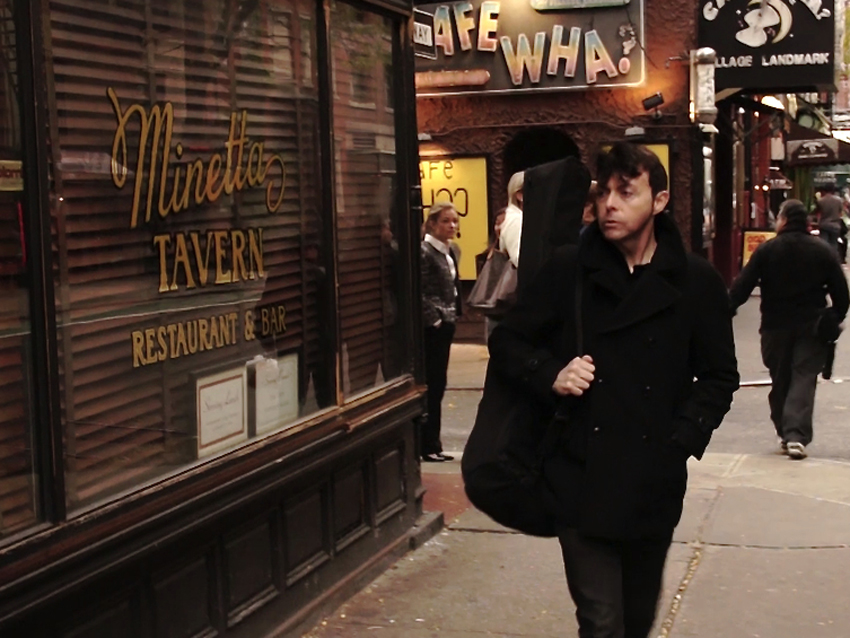
Richard Barone's top 5 tips for guitarists
Although Richard Barone is widely associated with New Jersey, and in particular the city of Hoboken, where, in the early '80s, his band The Bongos helped put the nightclub Maxwell's on the national map, the singer-songwriter now calls Greenwich Village home, and on an upcoming album he's paying tribute to a host of early '60s artists who burst out of such music spots as The Vanguard and The Bitter End.
"Being a singer-songwriter, I have a great affinity for and respect of the people who paved the way," Barone says. "Last year, I played a Nuggets show with Lenny Kaye, and afterward [journalist and A&R exec] Mitchell Cohen came to me with this idea for an album of songs by people who started the whole singer-songwriter movement in New York. I loved the concept right away."
Titled Sorrows & Promises: Downtown New York In The 1960s, the album sees Barone covering a range of writers who called the Village home in those pre-British Invasion days. "Phil Ochs, Paul Simon, Dion, James Taylor, Tim Hardin, Richie Havens, John Sebastian – it’s a wonderful journey," Barone enthuses. "And it all starts with Buddy Holly. After he left The Crickets, he moved to New York and was going to the clubs and absorbing the music of the Village scene. That's where his music would have gone if he hadn't died."
Barone says that the experience of rediscovering old gems by some of his favorite songwriters – and even picking up on a few tunes he hadn't heard before – has had a profound impact on him. "By playing these songs, I feel closer to the people who wrote them," he notes. "The lyrics reflected the way they thought and how they saw the world, particularly during that period. And it's interesting as a guitarist, too. There can be a new chord or the way somebody moved from one passage to the next. I love discovering stuff like that."
For more information on Richard Barone's Sorrows & Promises: Downtown New York In The 1960s, visit PledgeMusic. On the following pages, Barone runs down his top five tips for guitarists.
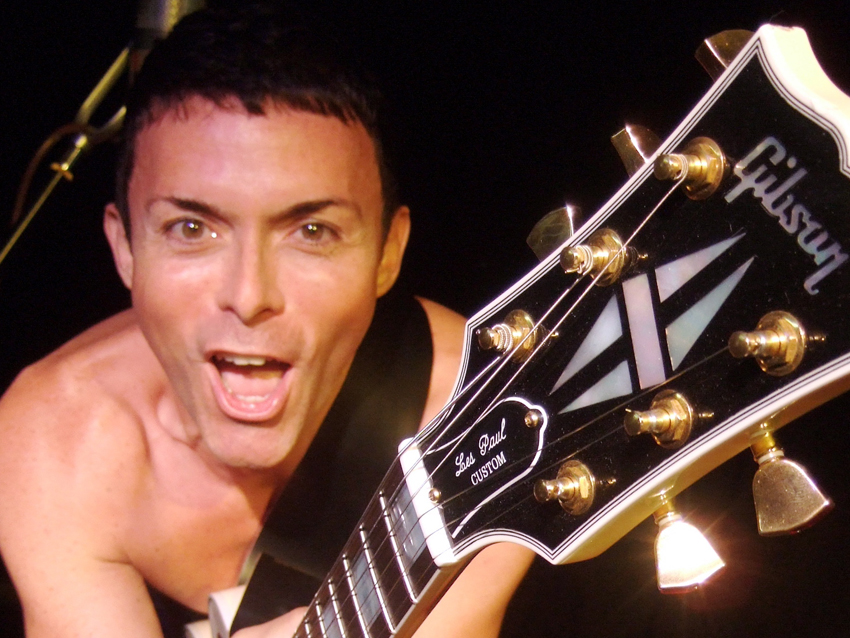
Work out
“I started working out when I was in The Bongos. We were a pop group, but we were also a punk group. Our shows were very high energy, and they required a lot of stamina. You do 300 shows like that a year, with all the traveling involved – you have to stay in shape.
“I do cardio as well as weightlifting – a really good all-round combination. By working out and exerting myself more than I do on stage, it makes everything I need to do as a performer a total breeze. Because I’m a singer as well as a guitar player, an added benefit to working out is a noticeable increase in my breathing capacity.
“On stage, I play a lot of Les Paul Standards and Customs. They’re fabulous guitars, but they’re not light. Try to play one of those for a whole set – you feel that weight after a while. I remember being at an airport once and I saw Jeff Beck standing there, and I thought to myself, ‘Wow, he has bad posture.’ I figured that came from decades of holding guitars on stage.
“Ever since I started working out, guitars feel so light to me. I can play a whole set with a Les Paul and not even notice it. The guitar is like a feather in my hands. So it’s a great idea for guitarists to work out and get in shape. Beyond the general good it’ll do for their health, it’ll help their performance skills immensely.”
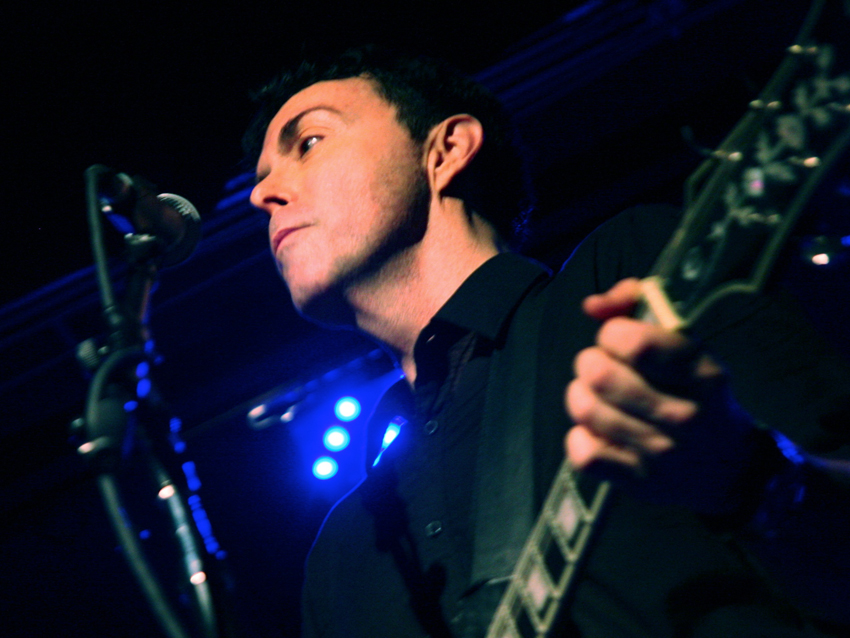
Learn how to listen
“At one point, it occurred to me that playing in a band is like having multiple conversations. You’re in a room with three or four other people, and they’re all engaging in a dialogue through their instruments. As in speaking, where you learn where silences are and you wait your turn to say something, you need to do the same thing when you’re playing music.
“I started to realize this when I was working in a group called ‘a’ with Glenn Morrow – we were sort of the proto-Bongos. I began to notice that there were times when I should play, but more importantly, there were times when I needed not to play. This runs counter to the way guitarists usually think – that we have to always bang away at our instruments to get noticed. That’s really not the case at all.
“This is akin to what actors do on stage. Actors’ instruments are their bodies, so they have to be aware of what the other actors are doing in and around them. They have to act, but they also have to react. The same holds true for musicians: They have to know how to listen, how to be aware of the big picture. When they play something at the right time and when they react to what another musician is doing, then it’ll be twice more effective than if they were just constantly making a bunch of noise.”
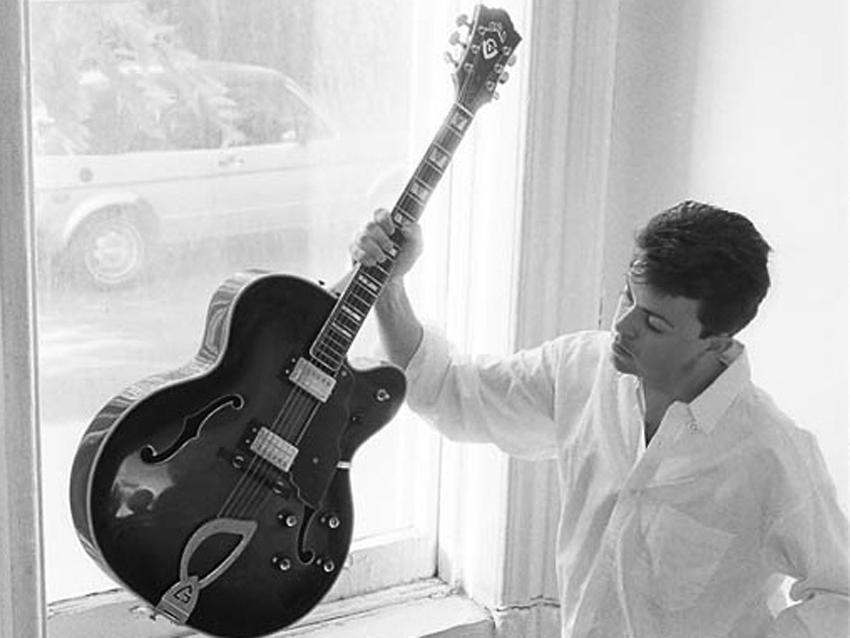
When soloing, be one or two bars ahead
“When you’re soloing, you should always know where you want to be one or two bars ahead. Music is a way of telling a story, and this is certainly true for soloing – you’re telling your own story through a solo. You wouldn't tell a story without knowing the end, so you shouldn't launch into a solo without an idea of where you want to wind up.
“A few years ago, I got to watch The Rolling Stones from the mixing board when they were filming Shine A Light, and I was really impressed with Keith Richards’ soloing. It seemed as if he would find an arbitrary note on the guitar and he would start something. He would then plan a solo around what that note was. Regardless of where he started, he’d work out a great melodic solo that had a lot of form to it. So it appeared that he knew where he wanted to go, even though the first note might not have anything to do with his end-point.
“For me, I like to know where I’m going with a solo. I want to know the next phrase, the next passage – I try to think at least one or two bars ahead of me. It's just like storytelling, I think.”
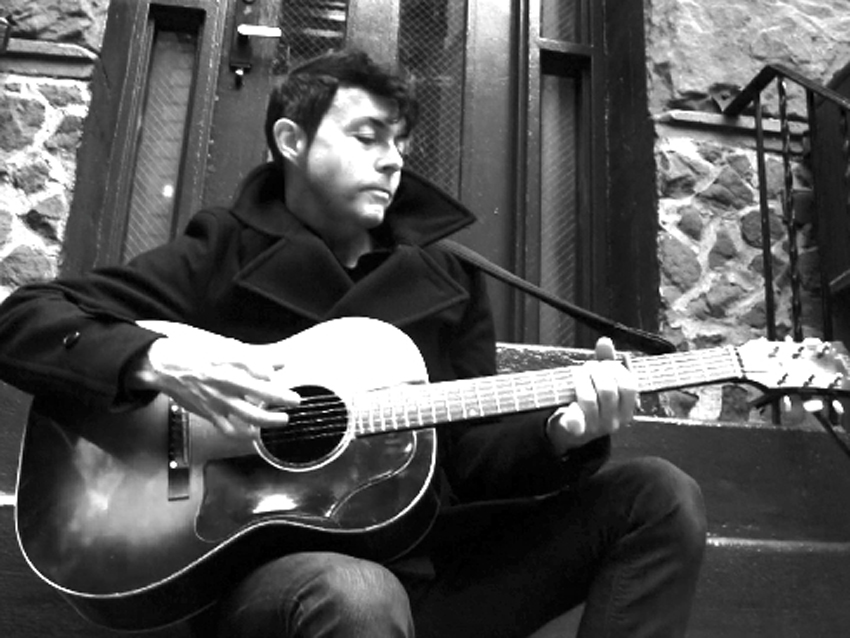
Think of the best lick you've ever played - then don't play it
“This quote is one that’s attributed to Miles Davis – it’s not something that was printed, but he would tell it to musicians all the time. Jazz musicians mention the quote a lot, and I use it myself when I’m producing.
“Miles Davis would also say, ‘If you don’t know what to play, play nothing.’ This is a little like what I was saying about knowing how to listen and when not to play. Your silences are just as important as your actual playing. There’s so much power in restraint. Marc Bolan knew this – he played just what was needed, nothing more, and it was awesome.
“This is something so hard for musicians to grasp, but if you learn how to restrain yourself, to resist the temptation to keep playing all the time, you’ll make some very interesting choices. You might go places you never thought of. Force yourself to play something new and unexpected.”
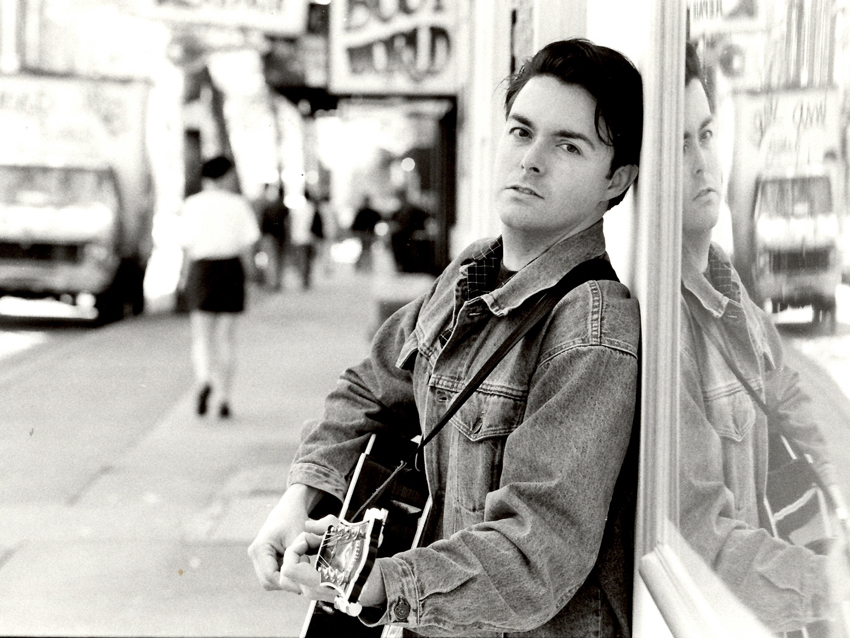
Play all the time
“Even though I’ve talked a lot about knowing when not to play and how to listen, the other important thing is to play all the time – at home. When I’m home by myself, I’m never without a guitar. I don’t have to edit myself, I don’t have to worry about what anyone else thinks – I can just play to my heart's content.
“I always have a guitar on my couch or on my bed or wherever. I like being able to just pick it up and play whenever the mood strikes. I was happy to read that Jimi Hendrix was the same way. Even if people were talking, he was playing. He wasn't being rude – he was just being himself. The guitar was a part of him.
“And that's the best benefit of playing all the time – when you go on stage, you feel as if the guitar is a part of you, and the playing that you do in front of people is an extension of the naturalness of your playing at home. It’s really not a hard thing to just play all the time. I think it’s cool. Some new songs might happen that way, too; songs rarely come to you in formal settings. So there you go – play, play, play."
Joe is a freelance journalist who has, over the past few decades, interviewed hundreds of guitarists for Guitar World, Guitar Player, MusicRadar and Classic Rock. He is also a former editor of Guitar World, contributing writer for Guitar Aficionado and VP of A&R for Island Records. He’s an enthusiastic guitarist, but he’s nowhere near the likes of the people he interviews. Surprisingly, his skills are more suited to the drums. If you need a drummer for your Beatles tribute band, look him up.
